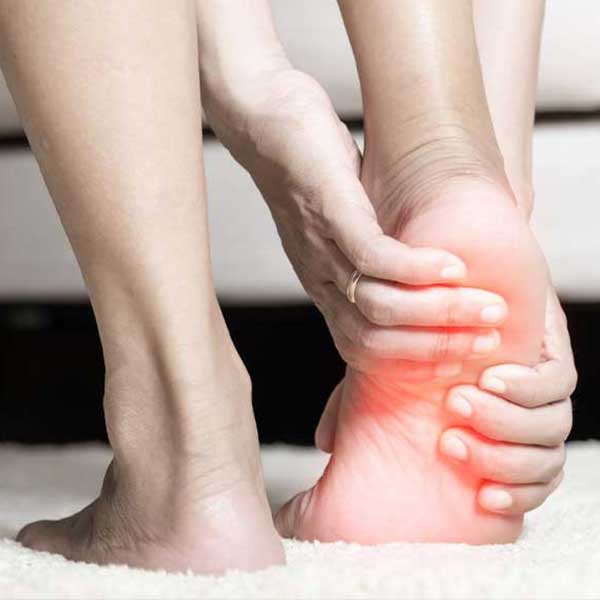Cause and Risk Factors
When looking at the 50+ risk factors for peripheral neuropathy Neuropathy Relief Miami can treat such patients. In order to embark on a real treatment course, it is important though understanding the risk factors (also called causes) of the problem. So here are the main categories of risk factors that cause neuropathy.

Metabolic Risk Factors for Neuropathy
Metabolic conditions are a huge point of impact on nerves, and the leading cause is diabetes. Diabetic Neuropathy affects around 60% of patients with diabetes–and this means they suffer all kinds of sensations such as pain, numbness and tingling. In some cases uncontrolled neuropathy can have serious effects
The Devastating Impact of Uncontrolled Neuropathy
It’s very important to feel the weight of uncontrolled neuropathy, or there is no basis for trying to stop or cure it.And that is why hundreds of thousands of people can be saved from having their legs cut off every year.
Chemical Causes of Peripheral Sensory Neuropathy
Exposure to certain chemicals and substances can lead to neuropathy. Factors contributing to it include:
Chemotherapy: Used in cancer treatment can damage peripheral nerves.
Excessive drinking often results in nerve damage occurring.
Medications & Drugs: neuropathy may be a side effect of some.
Environmental Toxins (Supplements): war toxins and industrial chemicals also can bring about neuropathy.
These chemical risk factors underscore the diverse origins of neuropathy and in so prevent it depends on a multi-faceted outlook.

Mechanical-origin neuropathies
Mechanical problems stemming from joint issues may cause nerve compression and consequently neuropathy. The common mechanical causes of this ailment are () : Bulged Discs- This condition occurs because of a damaged disk which extends into the spine’s adjacent areas Herniated Discs-Infection or disease can lead to a spinal disk becoming compressed and protruding though it should not Spinal Stenosis
Such cases illustrate how systemic problems in the physical body can, by limiting nerve function, contribute to the nature of neuropathy as a complex multifactostic trouble.
Hereditary Neuropathies:Genetic Risk Factors
Less common but equally real, genetic factors may play a significant part in neuropathy development. Hereditary conditions like Friedreich’s Ataxia and Charcot Marie Tooth Disease are types of genetic disorder which affect the human nervous system. Yet those two disorders together still only make up about 1% of all neuropathies. People need to be aware of their family history in order to detect potential hereditary neuropathies.
While less common, hereditary factors can play a significant role in neuropathy development. Conditions such as Friedreich’s Ataxia and Charcot Marie Tooth Disease are genetic disorders that affect the nervous system, though they account for less than 1% of neuropathies. Understanding one’s family history is vital for identifying potential hereditary neuropathies.
Charting New Courses on Road to Neuropathy Relief
We at Neuropathy Relief Miami believe that for those with Peripheral Sensory Neuropathy there should be nothing but the best. Our goal is not only to ease symptoms, but we also aim at treating the root cause and risk factors as much as possible. Our Intensive Care programs are meticulously designed around individual patient needs – designed to help relieve symptoms while improving quality of life.
Frequently Asked Questions (FAQs): Causes and Risk Factors
What are the main risk factors for developing Peripheral Sensory Neuropathy?
The risk factors are categorized into metabolic, chemical, mechanical, and hereditary:
- Metabolic factors include diabetes, which is the most common cause.
- Chemical factors encompass exposure to chemotherapy, alcoholism, certain medications, and environmental toxins.
- Mechanical causes are related to physical conditions affecting the spine, such as bulged discs, degenerative disc disease, and spinal stenosis.
- Hereditary neuropathies are less common, caused by genetic conditions like Friedreich’s Ataxia and Charcot Marie Tooth Disease.
How does diabetes contribute to Peripheral Sensory Neuropathy?
Nearly 60% of individuals with diabetes develop Diabetic Neuropathy. High blood sugar levels can damage peripheral nerves over time, leading to the characteristic symptoms of neuropathy. Managing blood sugar levels is crucial to prevent or slow the progression of neuropathy in diabetic patients.
Can Peripheral Sensory Neuropathy be prevented?
While not all types of neuropathy can be prevented, managing risk factors can significantly reduce the risk or slow the progression. This includes controlling diabetes, avoiding exposure to toxins, limiting alcohol consumption, and addressing any mechanical issues that may compress nerves.
Is there a cure for Peripheral Sensory Neuropathy?
There is no cure for Peripheral Sensory Neuropathy, but treatments are available to manage symptoms and improve quality of life. The treatment approach depends on the underlying cause of the neuropathy and may include medications, lifestyle changes, physical therapy, and in some cases, surgery to relieve nerve compression.
What treatments does Neuropathy Relief Miami offer for Peripheral Sensory Neuropathy?
Neuropathy Relief Miami offers a comprehensive approach to treating Peripheral Sensory Neuropathy, including Intensive Neuropathy Care programs tailored to individual needs. Treatments may focus on pain management, improving circulation, and addressing the specific causes and risk factors associated with each patient’s neuropathy.
For more information on managing Peripheral Sensory Neuropathy or to schedule a consultation, contact Neuropathy Relief Miami. Our team is dedicated to providing the care and support needed to manage neuropathy symptoms effectively.